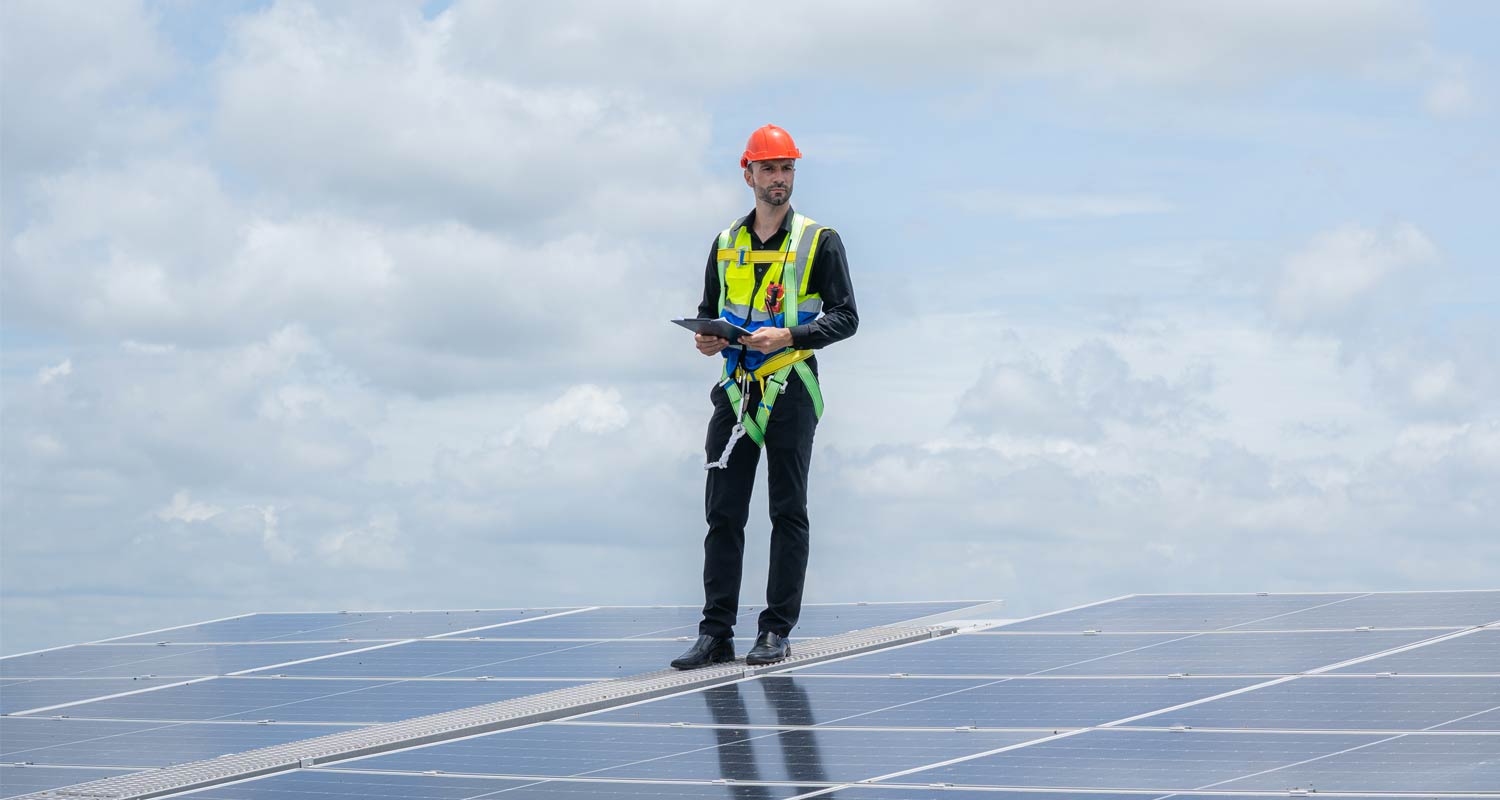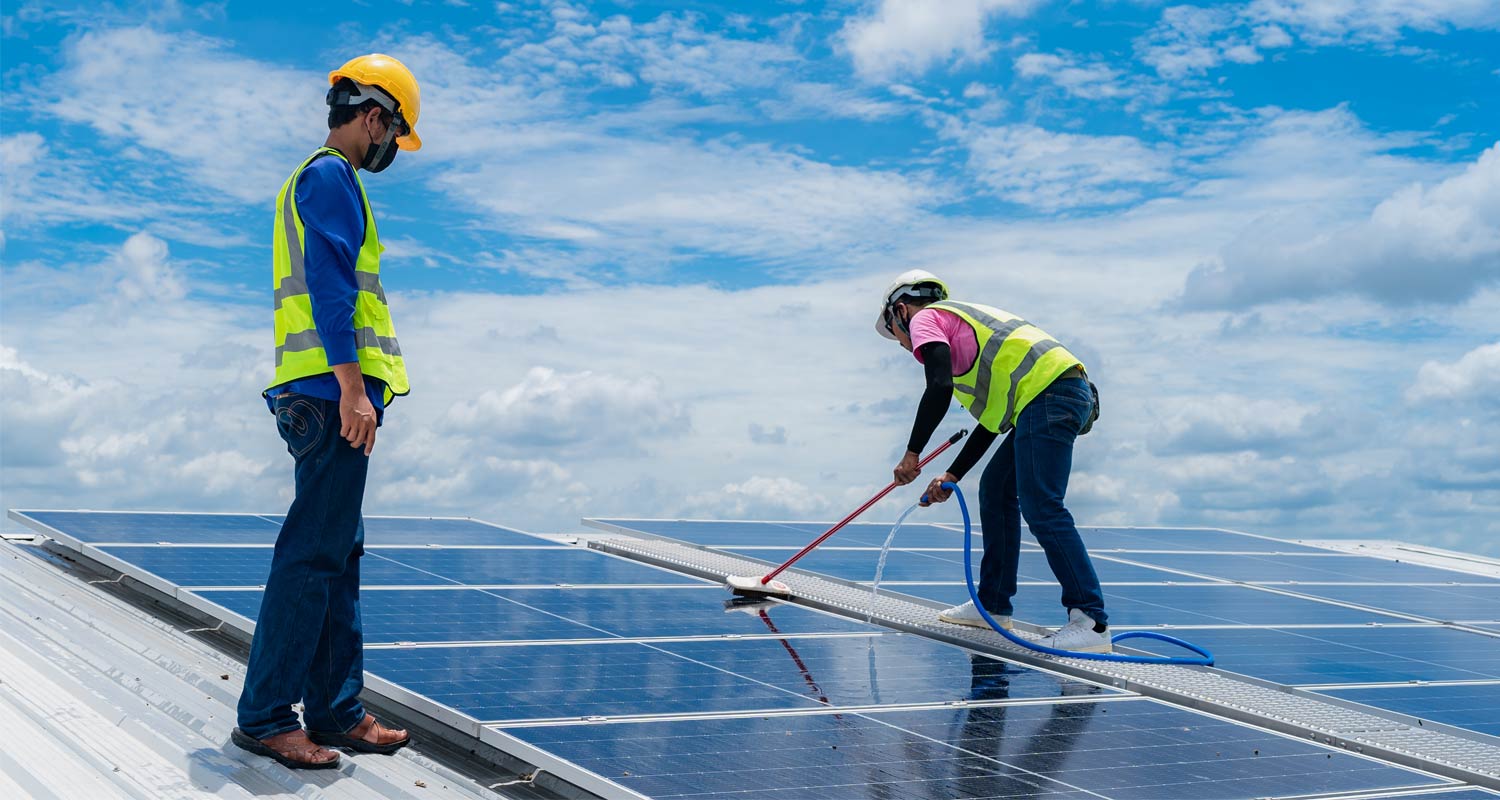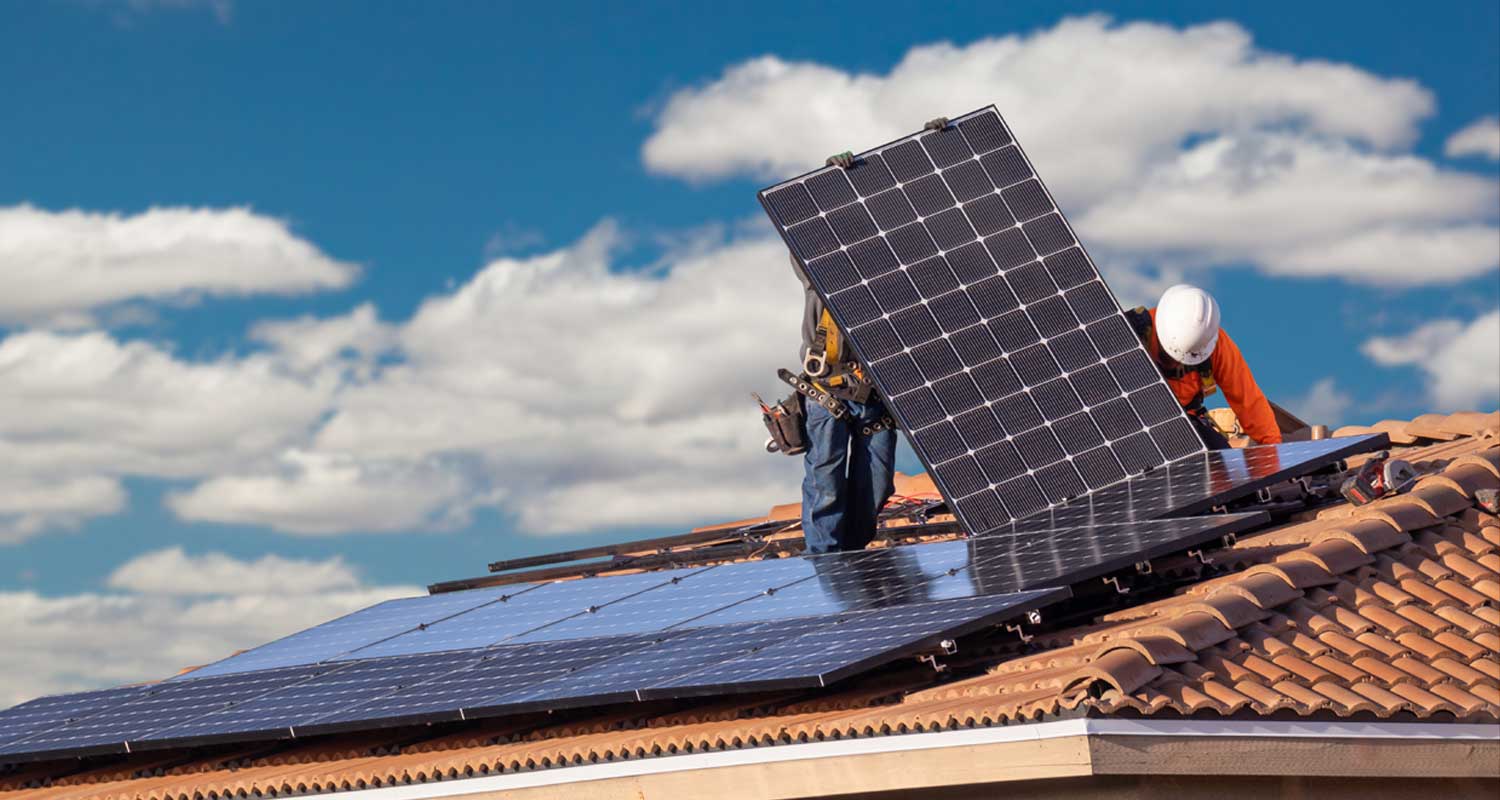 As more South Africans seek affordable, reliable solar power solutions to cope with Eskom’s continued load shedding, the big banks have stepped in to help.
As more South Africans seek affordable, reliable solar power solutions to cope with Eskom’s continued load shedding, the big banks have stepped in to help.
TechCentral spoke to Nedbank, First National Bank, Standard Bank and Discovery Bank about the solar financing solutions they offer to homeowners.
Nedbank
Nedbank launched its first set of financing packages on its Avo Solar website, aiming to make a greener energy supply accessible by offering solar and backup batteries at competitive prices. All the Avo Solar packages include installation by Nedbank-approved solar suppliers and installers and come with a 10-year warranty and certificate of compliance.
“South Africans have learnt that the only way to live and do business is to build resilience into their energy mix by harnessing the free power of the sun. To safeguard against unreliable electricity supply and increasing electricity prices, solar and backup power options have never made more sense,” said Nedbank Group managing executive of retail banking Ciko Thomas.
The bank allows up to 84 months to pay. “We offer a range of payment options, from cash to secure finance”, he said.
It’s estimated that an average household can save R26 000/year living off the grid.
FNB
First National Bank has introduced a range of new credit options for its clients to install solar energy solutions, with homeowners able to borrow up to 15% of the value of their homes.
The bank has introduced a new “Nav Energy” feature in its smartphone app to help clients with information and a selection of pre-vetted alternative solutions.
“Customers can now apply for a solar energy loan financed through a new or existing home loan. This allows customers to apply for a loan starting at R50 000 and going up to 15% of their home’s value to finance the installation of a solar energy system from a pre-screened list of reputable renewable energy providers,” FNB said.
The amount of the solar energy loan will be added to the customer’s bond and recorded as a single loan at interest rates that align with their credit profile.
“FNB will pay the deposit directly to the supplier upfront, so the customer will not be out of pocket unless there is a difference between the approved loan amount and the cost of the renewable energy solution selected by the customer, in which case the customer pays the difference or selects a more affordable solution.”
Those who do not want to install solar can also borrow money to buy UPS and inverter solutions, starting at R149/month over 24 months for a basic solution. Energy partners have been vetted by the bank to ensure no “fly-by-night operators”.
“While we have been supporting our individual customers with a range of solutions to build resilience against energy challenges, we believe that the personal solar loan benefit adds significant value as it allows us to extend more help to customers,” FNB Loans CEO MJ Davis said.
 “To access the benefit, you will need to obtain a quote from a reputable supplier. You will need to apply for an FNB personal loan, and it is important that you ensure your loan amount does not exceed R300 000 and the loan amount is within 90% of the invoice received. You will be quoted on your personalised interest rate.
“To access the benefit, you will need to obtain a quote from a reputable supplier. You will need to apply for an FNB personal loan, and it is important that you ensure your loan amount does not exceed R300 000 and the loan amount is within 90% of the invoice received. You will be quoted on your personalised interest rate.
“After your personal loan has paid out, you will need to pay a deposit to your supplier. Once the deposit has been paid, you will need to log onto the FNB app to activate the benefit. The interest rate will only be lowered on your FNB personal loan once the benefit has been activated and all supporting documentation is received and verified. Activation may take up to 10 business days. The rate will also be effective from date of activation and not backdated,” said Davis.
The requirements to qualify are:
- The loan amount cannot exceed R300 000;
- At least 90% of the funds from your personal loan must be used for solar generation and related costs. The funds must be used for solar panels and other solar related expenses. Solar-related expenses can include batteries, inverters and installation costs;
- The benefit must be activated within two months after payout of the FNB personal loan;
- Only one credit product per customer is allowed. This means if you’ve already taken up a solar benefit credit product with another bank, you will not qualify.
“All eligible customers will receive a rate of prime plus 1%. This is a very attractive rate from an unsecured credit perspective,” Davis said.
Standard Bank
Standard Bank is part of the government’s energy bounce-back loan guarantee scheme and offers loans as part of its LookSee solar scheme to cover the solar system and installation costs. LookSee’s scheme helps households access the benefits of solar power, regardless of who they bank with, and offers full system financing up to R300 000, to be repaid over five years.
The newly launched solar loan offers low interest rates and flexible repayment terms, said LookSee executive head Marc du Plessis.
Read: Surge in rooftop solar is hurting Eskom
The solar loan features personalised interest rates capped at a maximum of prime plus 2.5% on loans ranging from R3 000 to R300 000. Customers can also choose a repayment term between one and five years to suit their monthly budget.
“Our customers have the assurance that they won’t be penalised for paying off their loans earlier,” said Du Plessis.
Discovery Bank
Discovery Bank has partnered with solar solutions provider Rubicon. Discovery Bank CEO Hylton Kallner said: “While South Africans are resilient, the increased and ongoing interruption of electricity impacts all aspects of our lives and drives a need to find alternative ways to power our homes. We’re pleased to launch a financing solution that enables our clients to embrace solar, with the help of an excellent partner in Rubicon.”
An online calculator allows clients to get an instant quote tailored to their energy needs and energy advisors are available to guide clients through the selection process. Discovery Bank has developed flexible funding options that allow clients to choose an option to use a dedicated solar budget facility at interest rates from prime minus 2% and up over 72 months.
Absa
Absa home loans managing executive Nondumiso Ncapai said improving energy efficiency and helping customers manage their homes sustainably, according to their unique financial circumstances and requirements, is key for Absa,
The bank offers homeowners a range of financing options to consider for the installation of solar and other load shedding solutions which can be found on the Absa website including a guide to choosing the right installer.
Existing Absa home loan customers have the following financing options available to them:
- If the market value of a property has increased and the homeowner has equity in the property, they can apply for a further advance, which is an additional bond against the property. This option requires registering a further bond at the deed’s office.
- Alternatively, if the property owner has paid down the original loan amount, they may apply for the difference between the outstanding balance and the full loan amount through the ReAdvance option. In this case, an additional bond registration will not be applicable.
- Another available avenue is the switching of the home loan to Absa, along with the opportunity to apply for a higher loan amount, provided there is equity in the property. Any funds exceeding the loan amount will be paid directly to the property owner. Absa provides assistance for switching to customers by providing a 50% discount on bond registration fees (including VAT). In addition, Absa will pay up to R20 000 towards any remaining bond registration fees.
- Absa allows customers to structure these additional amounts into a secondary account with its MultiPlan feature. This allows the homeowner to structure the new loan with its own loan term and rate, enabling the them to save on interest by paying the additional loan amount over a shorter period.
- The above options are subject to a credit assessment.
“As a full-value bank, we also offer customers an option to obtain financing through a personal loan or credit card should this provide a more suitable solution considering their unique financing needs,” the bank said.
Investec
For its part, Investec said it provides support to private banking clients to fund sustainable alternative energy, technology and water solutions through flexible finance and access to partners.
Investec private bank sustainable solutions head Melanie Humphries said Investec launched a standalone funding product in 2022 that allows clients to install solar or water solutions at home or for their businesses.
It includes finance for solar panels, battery storage and water backup systems up to R500 000 – and bespoke funding for requirements above that amount. Features include no initiation fee, interest rate from prime and 60-month payment options. The property does not need to be bonded to Investec, and clients can source their own solutions or one of Investec’s curated options.
The bank’s clients also have the option to leverage their existing home loan facilities to fund the cost of their solar or water solutions.
Even with the banks offering these solar financing solutions, homeowners are advised to do their own research. If installed incorrectly, a solar system can turn into a costly mistake.
 “It takes a qualified and experienced installer to ensure that your solar system is able to stand the test of time, and that you benefit from the maximum output and energy savings allowed by your panels,” said Alumo Energy CEO Rein Snoeck Henkemans.
“It takes a qualified and experienced installer to ensure that your solar system is able to stand the test of time, and that you benefit from the maximum output and energy savings allowed by your panels,” said Alumo Energy CEO Rein Snoeck Henkemans.
He said a proper solar installation requires careful planning, the right equipment, and in-depth knowledge of local regulations and installation standards.
Solar installation involves working with high-voltage wiring and complex components, and strictly adhering to various regulations. If an installer makes a mistake at any stage of the installation process, it could seriously damage the system or create a fire hazard.
“Also, a sub-optimally installed system with incorrect voltage designs, mismatched batteries or inadequate temperature controls could result in damage to key components that will then require more repairs or replacement. Batteries, for example, account for as much as a third of a system’s total cost. If the batteries have to be replaced more frequently, they could substantially raise your total system costs,” warned Henkemans.
Read: Are solar installations a fire hazard?
Accredited installers issue a certificate of compliance for a solar system, a legal document that proves that it meets safety and quality standards and specifies what was added or changed through the addition of renewable energy technologies – important for insurance and home resale purposes.
Solar is a sizeable and worthwhile investment, but it needs to be planned and executed thoughtfully.
According to the founder of solar energy company Wetility, Vincent Maposa, opting for a solar subscription over an upfront purchase offers affordability, convenience, ongoing technological benefits and the peace of mind that your investment is well-maintained and protected.
Read: South Africa seeks deal with China on solar panels
“Affordability is a key factor, as it allows more people to access clean energy without a substantial upfront cost. Additionally, embedded maintenance contracts ensure that the solar system remains in optimal condition, saving the customer the hassle of self-maintenance,” he said.
“Technology in the solar industry is rapidly evolving, and by subscribing you can affordably upgrade systems and stay up to date with the latest advancements without the need for costly reinvestment,” Maphosa said. – © 2023 NewsCentral Media

